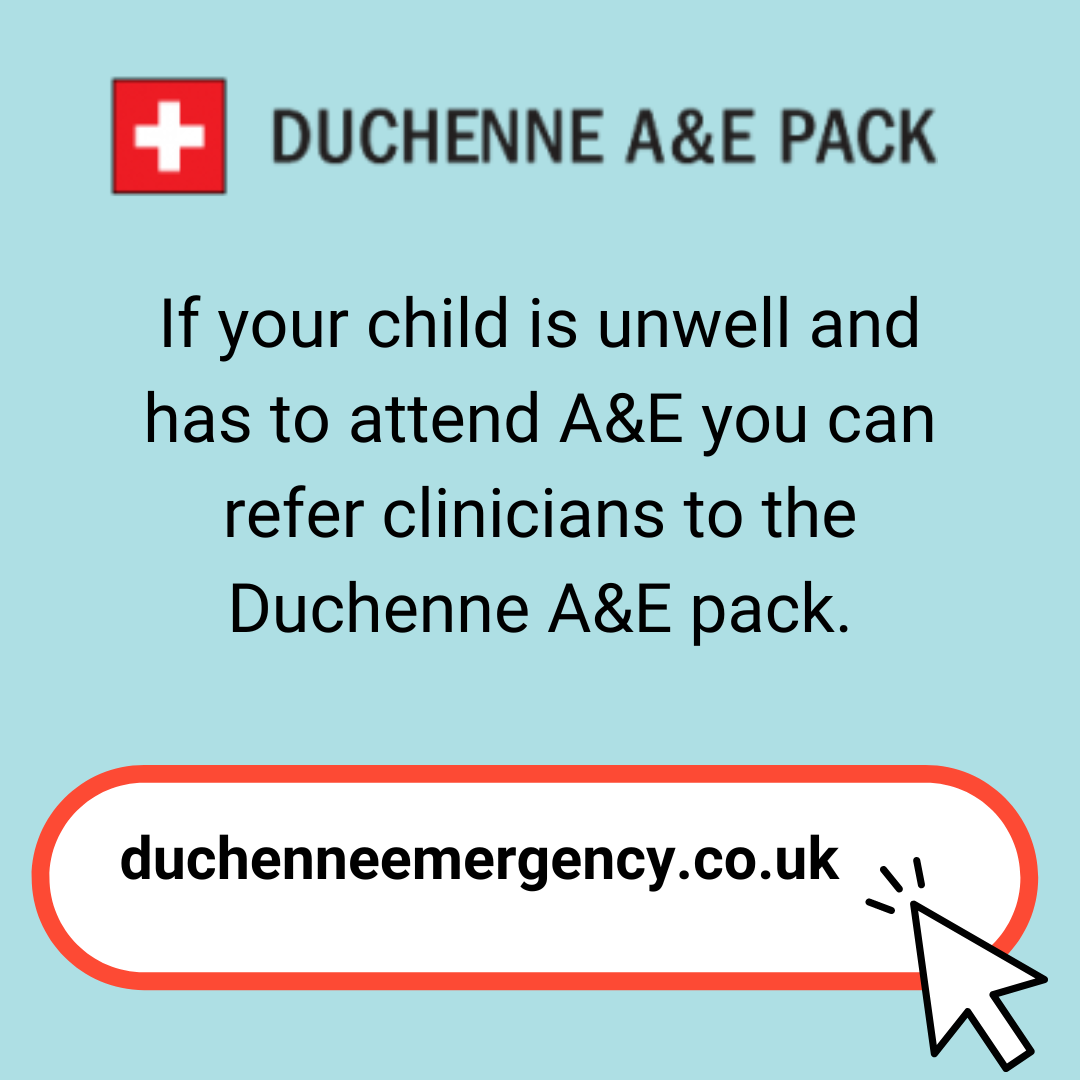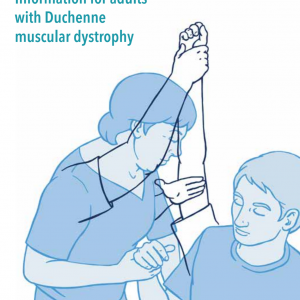Description
Action Duchenne developed the Emergency pack for patients living with Duchenne, in partnership with Professor Kate Bushby and Dr Tracey Willis, from the Centre for Life in Newcastle.
Why is the information necessary?
- You are likely to know more about Duchenne than the doctors in the Accident and Emergency department
- Most people living with Duchenne muscular dystrophy never need to visit an emergency department, however if someone with Duchenne is unwell and needs to go to hospital this file contains vital information that you can pass on to the emergency doctors.
- The pack contains information on the different areas of care, such as respiratory and cardiovascular care, gastrointestinal problems specific to Duchenne, fracture care and appropriate anesthesia and surgery management.
- Recent test results such as FVC (breathing muscle strength) and LVEF (heart function) along with everyday medications should be updated regularly. This gives emergency doctors information about your son’s normal status.
- Chronic steroid use needs to be made clear including how long your son has been taking steroids and if he has missed a dose.
- Boys with Duchenne are more at risk of broken bones if a break occurs in an ambulatory boy then walking can become compromised if not delt with properly; surgery is often a better option than casting.
- Information about giving oxygen therapy in Duchenne patients is very important.
This was made possible in the UK from the collaboration of all Duchenne Charities, and a grant from the QBE Foundation secured by the Duchenne Children’s Trust.





